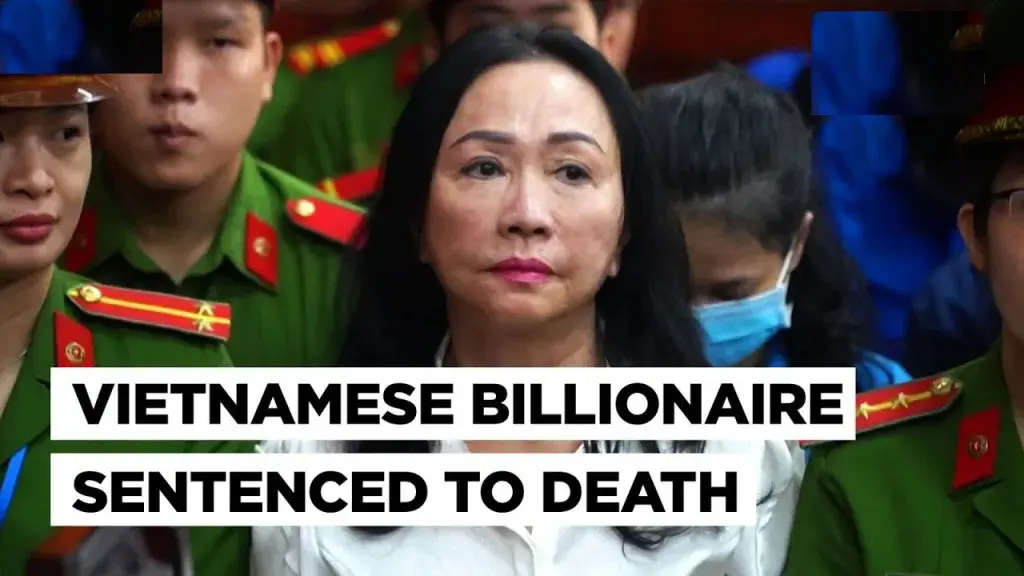In a landmark verdict that sent shockwaves through Vietnam's business community, Truong My Lan, a prominent real estate magnate, was handed a death sentence on Thursday for her involvement in the nation's largest financial fraud case. At 67 years old, Lan, the chairwoman of Van Thinh Phat, faced charges amounting to a staggering $12.5 billion, which represented nearly 3 percent of Vietnam's GDP in 2022.
Van Thinh Phat, under Lan's leadership, had been a key player in the development of luxury apartments, hotels, offices, and shopping malls. However, behind the façade of prosperity lay a web of deceit and financial malpractice. Alongside Lan, her niece Truong Hue Van, who served as the company's chief executive, was also implicated in the scheme and received a 17-year prison sentence for her role in aiding her aunt's fraudulent activities.
The severity of the punishment meted out to Lan has sparked intense debate across the country. While Vietnam is no stranger to the imposition of the death penalty, particularly for serious crimes such as murder and drug trafficking, its application in financial crime cases is rare, especially for individuals of Lan's stature and renown.
The verdict underscores the Vietnamese government's determination to crack down on corruption and financial misconduct, signaling a clear message that no one, regardless of their wealth or influence, is above the law. The case has served as a stark reminder to the business community of the potential consequences of engaging in fraudulent practices and has prompted calls for greater transparency and accountability in the country's corporate sector.
Despite the rarity of such severe penalties in financial crime cases, the judiciary's decision reflects the gravity of Lan's offenses and the significant harm inflicted on the economy and society. As Vietnam continues its rapid economic development and strives to attract foreign investment, ensuring the integrity of its financial markets and holding wrongdoers accountable for their actions remains paramount.
Who is Truong My Lan?
Truong My Lan, a prominent figure in Vietnam's business landscape, found herself entangled in the web of an anti-corruption crackdown that swept through the nation in October 2022. Born in 1956, her journey in entrepreneurship began alongside her Chinese mother, peddling cosmetics at Ho Chi Minh City's historic market. However, her trajectory shifted dramatically in 1992 when she co-founded Van Thinh Phat with her family.
Under her stewardship, Van Thinh Phat burgeoned into one of Vietnam's most affluent real estate enterprises. The company's portfolio boasts a plethora of prime properties in the heart of Ho Chi Minh City, including the towering 39-story edifice of Times Square Saigon, the opulent Windsor Plaza Hotel, the sleek Capital Place office tower standing 37 stories tall, and the distinguished Sherwood Residence hotel, which notably served as Lan's residence prior to her arrest.
In addition to her entrepreneurial endeavors, Lan's personal life intertwined with international connections. In 1992, she entered matrimony with Eric Chu Nap-kee, a Hong Kong investor, further solidifying her ties to the global business sphere. The union bore fruit in the form of two daughters, marking a significant chapter in Lan's personal narrative.
However, Lan's ascent in the business realm faced a significant setback when she became embroiled in the anti-corruption campaign gripping Vietnam. State media outlet Tien Phong reported her arrest, signaling a seismic shift in her fortunes and underscoring the gravity of the charges leveled against her.
As the dust settles from the aftermath of Lan's arrest, questions linger about the implications for Van Thinh Phat and the broader real estate landscape in Vietnam. The once-prominent figure now finds herself at the center of a storm, a stark reminder of the perils that can befall even the most entrenched figures in the business world amidst the tumult of anti-corruption crusades.
What is Truong My Lan charged with?
Lan's involvement in the 2011 merger of Saigon Joint Commercial Bank (SCB) with two other lenders, orchestrated by Vietnam's central bank, has taken a dark turn according to government documents. Allegations suggest that from 2012 to 2022, Lan illicitly manipulated SCB for personal gain. The accusations paint a picture of Lan utilizing the bank as a tool for her own enrichment, employing a web of "ghost companies" both domestically and internationally to facilitate loans to herself and her associates.
The scale of the alleged misappropriation is staggering, with reported losses amounting to a jaw-dropping $27 billion, as revealed by state media outlet VN Express citing Associated Press sources. This staggering figure underscores the magnitude of Lan's purported misuse of SCB's resources and her brazen exploitation of the banking system for her personal financial benefit.
Furthermore, the government documents outline Lan's involvement in a web of corruption, implicating her in the payment of bribes to government officials. Particularly damning is the accusation that Lan engaged in bribery with a former central official, who has since been sentenced to life in prison for accepting bribes totaling $5.2 million. This revelation not only underscores the depth of Lan's alleged corruption but also implicates high-ranking government officials in her schemes, indicating a systemic issue of corruption within Vietnam's financial and governmental structures.
The repercussions of Lan's actions extend far beyond mere financial loss. Such widespread corruption undermines public trust in financial institutions and erodes confidence in the integrity of governmental systems. The allegations against Lan and others involved in similar schemes highlight the urgent need for comprehensive reforms to combat corruption and restore transparency and accountability within Vietnam's banking and governmental sectors.
As investigations into Lan's alleged misconduct continue, the case serves as a stark reminder of the pernicious effects of corruption and the imperative of robust regulatory oversight to safeguard against such abuses of power in the future.








